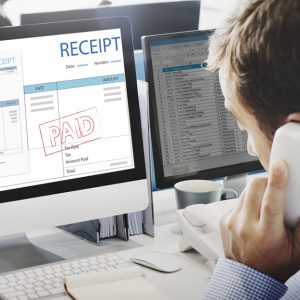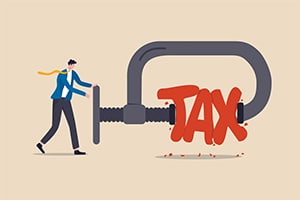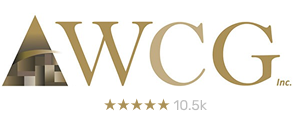
Business Advisory Services
Everything you need to help you launch your new business entity from business entity selection to multiple-entity business structures.
Hey - Our site just had a makeover and we are sorting through the hiccups!
Hey - Our site just had a makeover and we are sorting through the hiccups!

Everything you need to help you launch your new business entity from business entity selection to multiple-entity business structures.

Designed for rental property owners where WCG CPAs & Advisors supports you as your real estate CPA.

Everything you need from tax return preparation for your small business to your rental to your corporation is here.

Table Of Contents


There is also a modified cash-basis method of accounting for those who have inventory where generally you using cash-basis for recording transactions but record all inventory transactions using accrual-basis. Which method should you use?
Yes, there are all kinds of exceptions, rules, thresholds, etc. and other nauseating details. Let’s skip those now. Most small businesses can operate just fine using the cash-basis method of accounting; cash comes in, revenue. Cash leaves, expense or distribution (or loan payment or capital expenditure). Easy. Cash-basis method also prevents phantom income or paying taxes on bad income. What do we mean?
If you send an invoice on 12/31 but the client never pays, and you forget this, you will pay taxes on phantom income. Or, you send an invoice for $10,000 on 12/31 but the client only pays $6,000 on 7/1 because of a negotiated write-down; you paid taxes on $10,000 and now you must wait until the following year to recognize the $4,000 bad debt and subsequent reduction in taxable income. $4,000 times your tax rate might not be a big deal; $40,000 times your tax rate might be a killer since you didn’t get the cash to pay the taxes.
Another scenario is where you invoice a client on 12/31 but because of norms in the industry, they don’t pay for six months. If this is a large invoice you will have fronted the taxes generated by it on April 15 but not get paid until July 1. That can really stink.
Cash-basis method of accounting takes the mystery out of this stuff.
One question we get all the time… literally all the time… “I built a website for this dude and he never paid me. Can I deduct the amount he owes me?” It depends. If you are cash-basis then No since you never recognized the income nor paid taxes on it. If you are accrual-basis where you invoiced the dude and recognized the income as taxable, then Yes. To recap, you can only deduct a bad debt if you previously recognized the income.
Here is another example to hopefully take this home. You are a landlord. Your property is vacant for two months; your rental income is naturally reduced by this vacancy and as such creates a built-in tax reduction (not deduction… reduction… with an r).
Keep in mind that over time accrual-basis and cash-basis converge for most small businesses. From year to year things might be different, but after 2-3 years historical net income between the accounting methods will start to converge. After a decade or more, historical net income is virtually identical between accrual and cash. Sure, there are probably extreme and rare examples where this statement fails, but generally speaking it holds.
Cash-basis, because it tracks actual cash flow without worrying about invoices not yet paid.
Only if you use accrual-basis and previously recognized the income as taxable.
It uses cash-basis for most transactions but accrual-basis for inventory tracking.
Yes, taxes are only owed on money actually received.
When you want to match income with earned revenue, even if cash hasn’t been received yet.
Over several years, cash and accrual methods generally produce similar results.
Yes, it naturally accounts for vacancies and aligns taxable income with actual rent received.
Yes, but IRS rules may require approval depending on business size and circumstances.
Accrual-basis or modified cash-basis is preferable for inventory-heavy businesses.

Want to talk to us about tax return preparation, tax planning and strategy, and all the other things that go with it? We are eager to assist! The button below takes you to our Getting Started webpage, but if you want to talk first, please give us a call at 719-387-9800 or schedule an discovery meeting.
Jason Watson, CPA is a Partner and the CEO of WCG CPAs & Advisors, a boutique consultation and tax preparation CPA firm serving clients nationwide with 7 partners and over 90 tax and accounting professionals specializing in small business owners and real estate investors located in Colorado Springs.
He is the author of Taxpayer’s Comprehensive Guide on LLC’s and S Corps and I Just Got a Rental, What Do I Do? which are available online and from mostly average retailers.
Table Of Contents

Tax planning season is here! Let's schedule a time to review tax reduction strategies and generate a mock tax return.

Tired of maintaining your own books? Seems like a chore to offload?
Did you want to chat about this? Do you have questions about us? Let’s chat!
The tax advisors, business consultants and rental property experts at WCG CPAs & Advisors are not salespeople; we are not putting lipstick on a pig expecting you to love it. Our job remains being professionally detached, giving you information and letting you decide within our ethical guidelines and your risk profiles.
We see far too many crazy schemes and half-baked ideas from attorneys and wealth managers. In some cases, they are good ideas. In most cases, all the entities, layering and mixed ownership is only the illusion of precision. As Chris Rock says, just because you can drive your car with your feet doesn’t make it a good idea. In other words, let’s not automatically convert “you can” into “you must.”
Let’s chat so you can be smart about it.
We typically schedule a 20-minute complimentary quick chat with one of our Partners or our amazing Senior Tax Professionals to determine if we are a good fit for each other, and how an engagement with our team looks. Tax returns only? Business advisory? Tax strategy and planning? Rental property support?

Everything you need to help you launch your new business entity from business entity selection to multiple-entity business structures.

Designed for rental property owners where WCG CPAs & Advisors supports you as your real estate CPA.

Everything you need from tax return preparation for your small business to your rental to your corporation is here.


